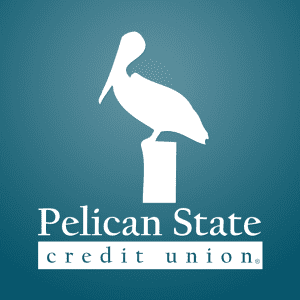Disclaimer: This post is sponsored by our partners at Pelican State Credit Union, who have been providing financial services to individuals and families in Louisiana for almost 60 years.
I remember when I hit the lottery. At least, I hit the lottery according to 12 year-old me’s standards. I found out about the Accelerated Reader, or “AR,” program in school. It gave students a chance to earn prizes by reading books and taking tests on them. Anyone who reached 100 points was rewarded with a $100 savings bond! I saw that dollar sign and made it my goal to get 100 points.
My friends would want to play video games, but I had books to read. If they only knew about the $100 prize! I started thinking about all of the things I would do with a $100 bill: toys, games—maybe even a new bicycle! About 20 books and a couple of months later, I finally reached the 100 point goal. I had hit the lottery! I went to the principal’s office, on special request no less, and felt like a million bucks.
Then, they handed me a savings bond.
“This isn’t money!” I thought to myself. I was so upset about my prize. I asked the principal about the reward I earned, and she told me about saving and how it would be worth $100 in the future. The future? That’s forever in kid-speak! If I would have been taught more about saving earlier, I would have been a little more understanding of my earned investment. I’d be as understanding as a kid can be, at least.
When should you start talking to kids about finance?
I’m not knocking my parents; I think they did an amazing job of raising me. But, when should they have talked to me about finance, though? That’s the question on plenty of parents’ minds when it comes to money.
What’s surprising is that in a recent study of 1,000 parents, 72% were reluctant to talking to their kids about money. Some parents don’t want to talk to them when they’re too young, some don’t want to burden them with the responsibility, and some just don’t know where to start. It’s tough to know when children are old enough to be taught certain subjects and what lessons they should learn by experience.
Here’s the cool thing: you can start teaching them as young as 5 or 6! While their brains are acting like sponges, soaking up all of the information around them, start to teach them about basic finance skills. Dollars and cents are a great starting point to teach them the value of a dollar and how to save up money for something they want or absolutely need to buy.
From there, you can start adding in some really fun activities. One of the best I’ve seen is starting a kid-sized “Job Board” with lists of extra chores on it. Each chore comes with a little chunk of change. This can teach your children the value of the money they earn by letting them work for things they want. By giving them the chance to pick up some extra optional chores for money, they aren’t getting in the mindset that they have to be paid to pitch in around the house.
Instead of getting them to carry around cash and risk losing it (which is a lesson we’ve all learned at some point in our lives), you can take your teaching to the next level and get them a youth savings account. This teaches them about the importance of a financial institution, how to protect their money and how to watch their spending in a digital-first world.
How can I get my kids a youth savings account?
This is actually a really easy step to take! While some financial institutions require youth accounts to be opened by a teenager, there are some places that let kids of any age open a savings account. They’ll still need a parent to be a joint account holder, but younger children can feel important, too with a Team Pelican Youth Account at Pelican State Credit Union.
This account is made specifically for making the right impression on society’s most impressionable generation. A Team Pelican Youth Account is a great way to get your children started with saving! The sooner they start learning how to manage their money – the better. Just by getting your kids to open a savings account, you’re teaching them to make better financial decisions!
Team Pelican Youth Accounts are More Than a Savings Account
With a Team Pelican Youth Account, your child is getting more than a plain-old savings account. There are lots of benefits that Team Pelican members receive:
- No monthly service fee
- Quarterly dividends paid on the entire account balance
- A’s that Pay: Get $1 for every A on the report card!
- Exclusive eligibility for a $500 Pelican Scholarship Award*
Pelican State CU has been giving out scholarships to graduating high school seniors in Louisiana for almost 10 years! These scholarships are perfect for helping with college tuition, textbooks and even meal plans. To sweeten the pot, there’s one deserving winner chosen for each branch across the state of Louisiana. So not only are your children learning about finance, they have the chance to get money for their college career thanks to the savings account you opened with them!
Add your child’s new savings account to the finance skills they’re learning as they’re growing up, and your kids will have a head start on the path to financial security. They’ll thank you when they’re older.
To find out more about Team Pelican Youth Accounts and to have your child apply for one you can visit the Team Pelican page on their website or find a Pelican branch near you.
*Pelican State CU membership eligibility required. Adult 18 years old or older must be a joint account holder on child’s Team Pelican youth savings account. Highest attainable grade on report card pertains to each individual report card’s grading scale. Only semester-end (December and May) report cards are eligible. Maximum of $10.00 per semester. Copy of official report card required. Team Pelican savings accounts are federally insured by NCUA.
About Pelican State Credit Union:
For almost 60 years, Pelican State Credit Union has provided financial services to individuals and their families throughout the state of Louisiana. Pelican was originally chartered as the Department of Hospitals Credit Union in 1956 and has since grown into one of the largest state chartered credit unions in Louisiana serving over 41,000 members nationwide. Its field of membership now includes the employees of more than 200 private companies and residents of Rapides Parish.
Pelican is a full service financial institution offering checking, loans, credit cards, mortgages and more. It is dedicated to the financial education of its members and employs 5 full-time, nationally certified credit counselors. This team offers free credit counseling in a one-on-one or group setting with the goal of empowering members to make informed financial decisions. As a not-for-profit cooperative, Pelican returns its earnings to its member-owners in the form of higher dividends and lower loan rates. Pelican recently hosted a series of “Pelican Pays” contests and events that describe the credit union’s drive to make loans to members, its charitable fundraising and volunteerism, and the community events that literally pay cash. It pays to be a member of Pelican State Credit Union!



















